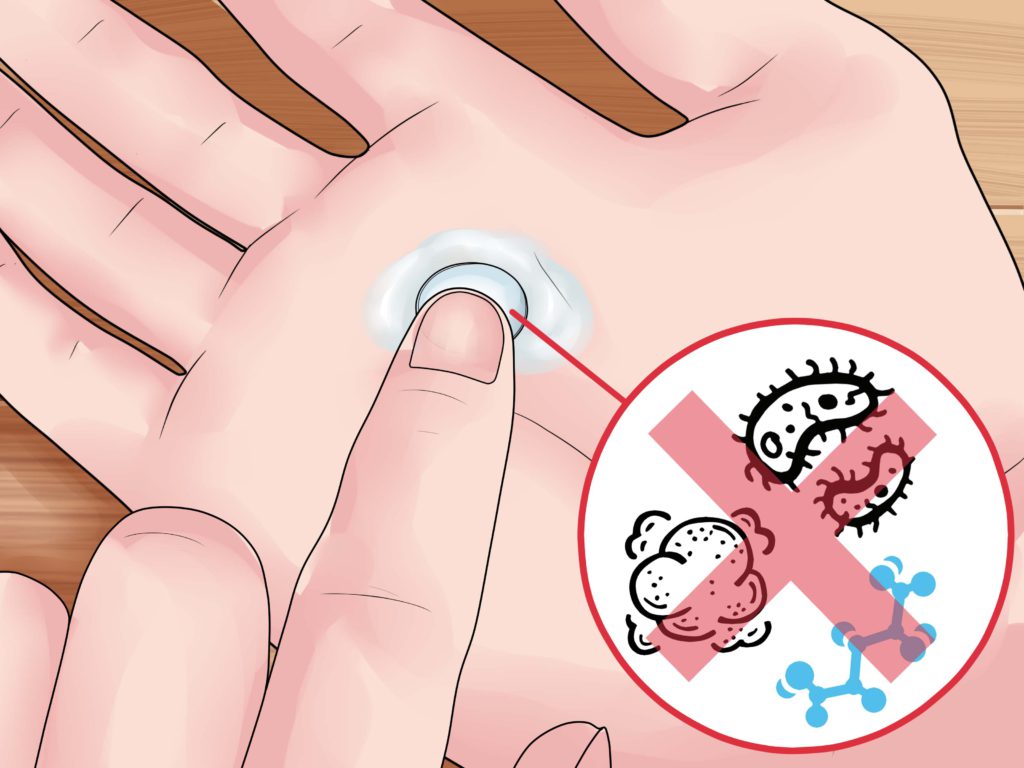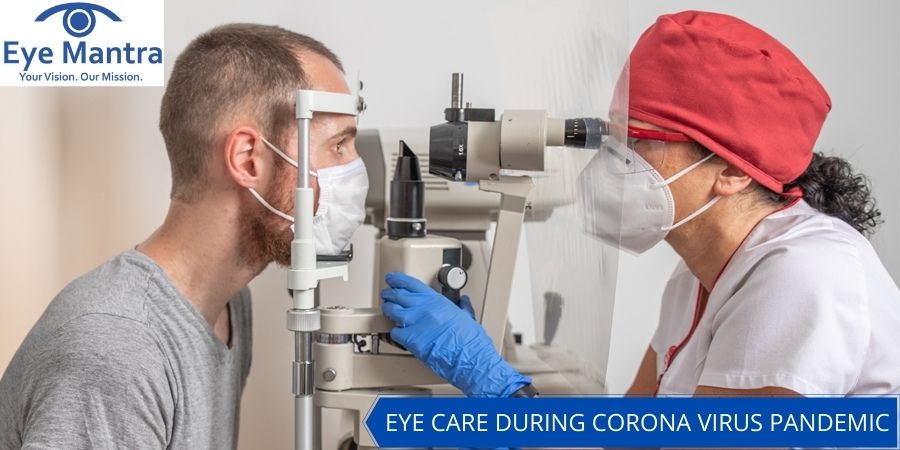Contents
Eye care during coronavirus is very important. While masks and hand sanitisers are obligatory as a preventive measure against the fatal coronavirus (COVID-19) pandemic, eye care authorities are stressing the fact that the infection can transmit through the eyes as well.
Yes, eyes are one more section that is getting added to the developing list of body parts that might be affected by the novel coronavirus. An ongoing report from China affirms different reports that the virus can infect the conjunctiva. It has been said that the coronavirus can enter different body parts through the eyes, and the discharge from the infected eye can be a source of transmission of infection to other people as well. Appropriate eye care during the coronavirus along with precaution is significant to keep yourselves safe during the pandemic because unprotected eyes can be a cause for an extended risk of virus contamination and transmission around the world.
Patients who have been infected by the coronavirus might show some ocular symptoms. The inflammation of the membrane that covers the eyeball is conjunctivitis. It is usually referred to as “pink eye.” The main symptoms of conjunctivitis infect /red, wet, and weepy eyes. Sometimes patients might not have a fever, cold, cough, or other symptoms other than conjunctivitis. These patients can likewise encounter loss of smell and loss of taste.
Viral conjunctivitis to present with certain respiratory infections like cold, flu, etc. Can be a symptom of the COVID-19 infection. An ongoing investigation of clinics across China, distributed in the New England Journal of Medicine, found conjunctivitis or red-infected eyes in 9 of 1,099 patients (0.8%) with confirmed reports of coronavirus. Despite the fact that there are not many reports of COVID-19 conjunctivitis except China, one should be cautious when one develops conjunctivitis during this COVID time and get oneself checked immediately
Is it necessary to take care of your eyes during coronavirus pandemic?
Coronavirus can spread through the eyes, similarly as it does through the mouth or nose. At the point when somebody who has coronavirus coughs, sneezes, or talks, infection particles can get released from their mouth or nose onto your face. You are probably going to inhale these little droplets in through your mouth or nose. But, the droplets can likewise enter your body through your eyes. You can likewise get contaminated by contacting your eyes after getting in contact with something that has the infection on it.
Guarding your eyes — just as your hands, nose, and mouth — can slow down the spread of the coronavirus. Here are a few different ways to keep your eyes safe and healthy during this coronavirus flare-up. It’s imperative to recall that in spite of the fact that there is a great deal of worry about the coronavirus, common precautions can essentially decrease your risk of getting contaminated.
Don’t Use Contact Lenses

There’s no proof that wearing a contact lens builds your danger of coronavirus disease. but, contact lens users touch their eyes more than the normal individual. “Consider wearing glasses more regularly, particularly if you tend to touch your eyes a lot when your contacts are in. Subbing glasses for lenses can diminish irritation and force you to stop before contacting your eye.
Eyeglasses And Goggles
Corrective glasses or shades can shield your eyes from tainted respiratory droplets. But one should remember that they don’t give 100% protection. The infection can, in any case, arrive at your eyes from the uncovered sides, tops, and bottoms of your glasses. In case you’re taking care of an infected patient or possibly exposed individual, safety goggles may offer a more grounded defence.
Stock Up On Eye Medicines
Specialists encourage patients to stock up on basic medicines, with the goal that you’ll have enough to get by if you are isolated or if supplies become constrained during an outbreak. However, this may not be possible for everybody. In the event that your insurance permits you to get more than 1 month of fundamental eye medication, for example, glaucoma drops, you ought to do as such. Approach your pharmacist or ophthalmologist for help in case you experience difficulty in getting an endorsement from your insurance agency. Keep in mind to always request a refill as soon as you run out of your medicines. Do not wait to contact your pharmacy until last minute.
Avoid Touching And Rubbing Your Eyes
It may be difficult to get out of this regular habit, yet doing so will bring down your danger of getting infected. If you feel like itching or rubbing your eye or even to adjust your glasses, utilize a tissue rather than your fingers. Dry eyes can prompt all the more scouring, so consider adding moisturizing drops to your eye care routine. If you have to touch your eyes any way for any reason, even to administer eye medication wash your hands first with soap for a minimum of 20 seconds. At that point wash them again after touching your eyes.
1. PRACTICE EYE HYGIENE
To limit/diminish the hazard practice eye hygiene, as eyes could be a source of spread and prevention of contamination. Try not to contact your eyes with messy hands and clothes. Wash your eyes with clean water two times per day.
2. CONSULT YOUR DOCTOR
If you display symptoms associated with the eyes, contact your primary care physician for a check-up.
3. WASH YOUR HANDS PROPERLY AND REGULARLY
Wash your hands with cleanser and water frequently, if cleanser and water aren’t available, use a sanitizer.
4. AVOID TOUCHING YOUR FACE
Abstain from contacting your facial parts-especially your eyes, nose, and mouth with unwashed hands. It is the mucous films of these parts that are generally susceptible to transmission of the infection.
5. USE TISSUE PAPER
Use tissue paper to cover your mouth and nose while coughing or sneezing. Try not to use fabrics to rub your eyes or when sneezing and coughing. On the off chance that material is infected with the virus, it can contaminate you.
6. WEAR FACE MASK
To diminish the danger of contamination; wear face masks as you step out of your home.
7. MAINTAIN PHYSICAL AND SOCIAL DISTANCING
To lower the danger of infection, it is a must to keep up the physical and social distance. Remain at home and avoid going out. Avoid close contact with individuals.
8. CLEAN AND DISINFECT SURFACES AND COMMONLY USED ITEMS
Routinely sterilize usually touched surfaces and items in your home; viruses and bacteria last on the surfaces for many hours.
When To Consult A Doctor
You should immediately call your ophthalmologist or other medical doctors at the earliest in the following circumstances:
- You have macular degeneration or diabetic retinopathy
- Get regular eye injections
- You notice changes in your vision (like blurry or cloudy, wavy or blank spots in your field of vision)
- Do you have an eye injury, regardless of whether it appears to be minor
- You start noticing new floaters or flashes in your vision
- Or you have suddenly lost some vision
- You have a red eye or eye pain, particularly whenever related to headache, nausea, or vomiting.
Conclusion
During this pandemic, it might be annoying and emotionally exhausting to keep up with the news updates and advice originating from different sources The most dependable data is that which is based on and related to science, so keep up with good self-hygiene, social distancing and follow the advice of your ophthalmologist to ensure a good vision.
To know for sure if your dry eyes need prevention, medicines or surgery, is to visit the best Eye Hospital Delhi. Your eye doctor will examine the eye thoroughly.
Call +91-9711115191 now and book an appointment with EyeMantra. Or mail at [email protected].
We also offer various services like Retina Surgery, Specs Removal, Lasik Surgery, Squint, Cataract Surgery, Glaucoma surgery, and much more.
Related Articles:
Night blindness: Causes, Symptoms, Diagnosis & Treatment
Phacoemulsification Surgery: Diagnosis, Process, Benefits & Risks: All you Must Know



